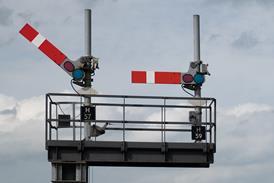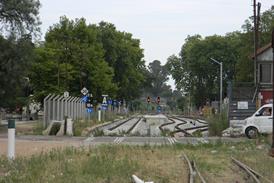ALL EYES are on France as new SNCF President Anne-Marie Idrac takes up the reins in the toughest management challenge in Europe’s railway business.
Formally appointed on July 12, Idrac succeeds Louis Gallois, who has returned to the aerospace business from whence he came in July 1996. The presidency of SNCF is a political post, and Gallois was put there to build bridges with the unions after the disastrous strikes of December 1995 when the government’s preferred appointee, Loãk Le-Floch Prigent, was jailed because of the corruption at oil group Elf-Aquitaine. Gallois inherited a mess, and he leaves behind a fragile milieu where the powerful rail unions are intent on retaining the status quo.
Idrac will be under no illusions about her two toughest tests - to rescue the freight business from collapse and to tackle the poor productivity for which SNCF has sadly become renowned. Readers will hardly need reminding that the issues are inter-related. How she deals with them will affect the future of rail across Europe - France is seen by frustrated freight operators in neighbouring countries as a no-go area, despite the tentative start of open access operations.
Hostilities began even before Idrac’s appointment was confirmed, with two of the four CGT union representatives on the SNCF administrative board voting on July 10 against her nomination and two abstaining.
Idrac is widely seen as having made good progress during her tenure as President of RATP - it was under her charge that plans to convert Paris metro Line 1 to driverless operation were pushed through.
She is chiefly remembered, however, for being Transport Secretary at the time of the 1995 industrial dispute which centred on a controversial Contrat de Plan to bring about strategic change at SNCF - including altering the status of railway staff and their generous terms of employment. Union representatives lost no time in reminding the media of Idrac’s previous role and warning against ’rampant privatisation’, for which they are unwittingly the greatest proponents.
Idrac may be in no hurry to publicise her agenda, but the freight fiasco demands urgent attention. A series of strikes and indifferent service have infuriated customers. At the end of June, the Association of Freight Transport Users wrote to Fret SNCF chief Marc Véron complaining that industrial production was being compromised.
According to Le Figaro, Ciba Spécialité’s chemical plant in Normandy was on the point of being shut down in early July because raw materials had not been delivered. Georges de Lallo, President of the European Rail Freight Platform, described the situation as ’catastrophic’, with customers desperate for alternatives. Steel giant Arcelor, for example, is taking a stake in Luxembourg Railways’ freight division in the hope of being able to influence how its cargo is transported in and out of France.
Véron acknowledges that there has been ’phenomenal disorganisation’, informing Les Echos in mid-July that ’we should be carrying 1 billion tonne-km a week, but in reality we are handling only 850 million’. Much is at stake, with SNCF’s commitment to put freight in the black this year after a €800m injection of state aid being closely watched by the competition authorities in Brussels. Fret SNCF’s financial forecasts after last year’s loss of €214m are already looking grim, and there are suggestions that loco procurement will be cut back in 2007.
The only break in the clouds was the signature on July 4 by SNCF, RATP, user representatives and other interested parties of a charter that commits the operators to keep passengers informed during industrial disputes and to put plans in place to avoid conflict, although it is a far cry from the guarantee of minimum service levels once sought by the government. However, it does not apply to freight customers, and they will be leaving in droves if Idrac fails to halt the slide down the road to ruin.




















